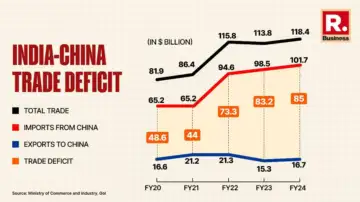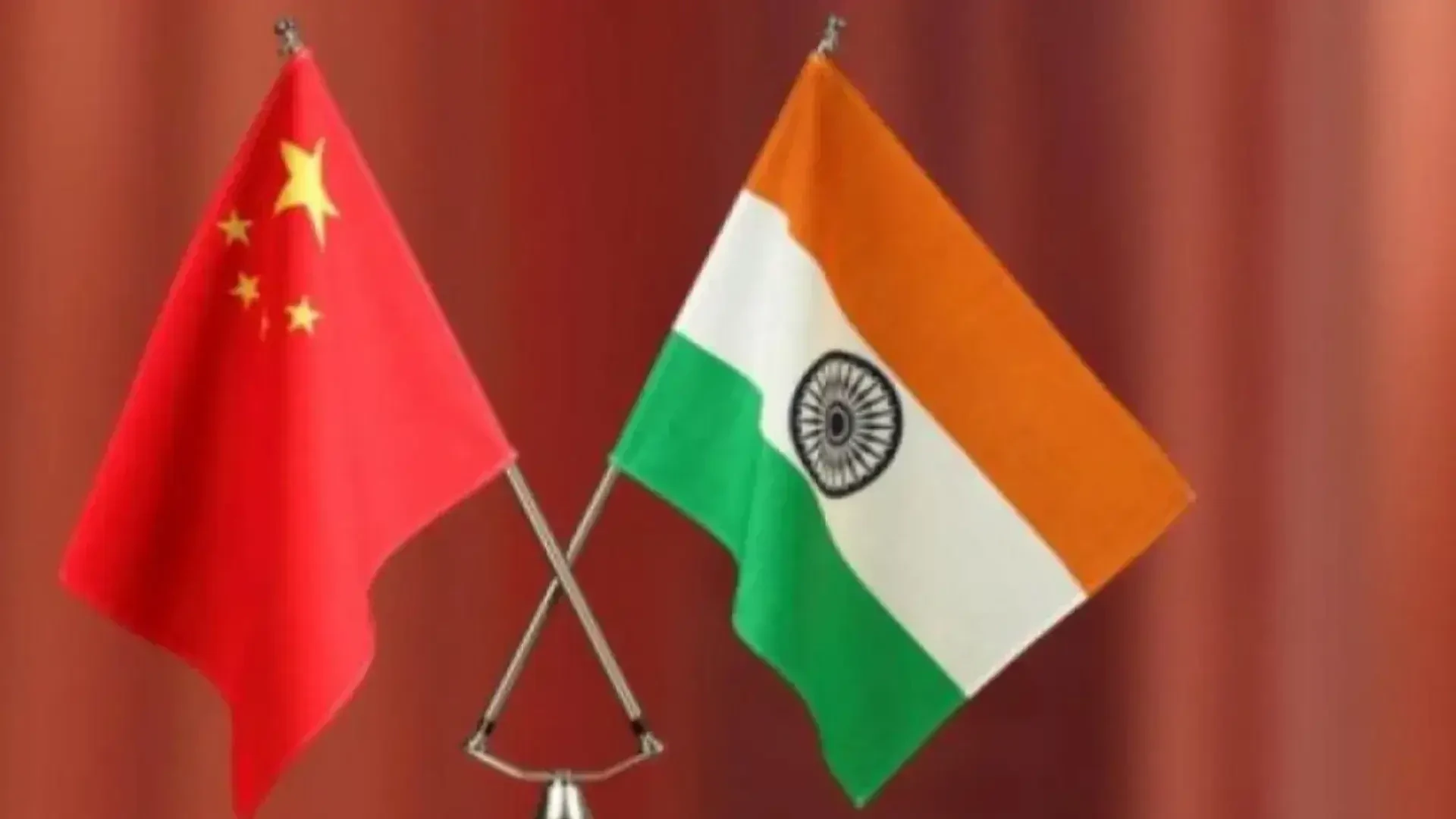India is currently at a crossroads where it’s becoming increasingly independent in line with Prime Minister Narendra Modi’s ‘Atmanirbhar Bharat’ initiative, but is also facing the brunt of decoupling from China.
Trade Deficit Between India And China
The trade deficit between India and China in the financial year 2019-20 (FY20) stood at $48.6 billion. Consequently the trade deficit between the two countries stood at $44 billion for FY21, $73.3 billion for FY22, and $83.2 billion for FY23, and $85 billion in FY24.
 Real Impact Of Decoupling From China
Real Impact Of Decoupling From China
While there is an economic decoupling with China that is happening, India is facing both costs and potential benefits.
As India aims to reduce its dependence on China, particularly in certain sectors, the process is proving to be challenging and costly.
Largely the potential costs include curbs on mineral fertilisers, fertiliser export ban, recent recall of Foxconn employees, disruptions to supply chains, adverse economic impact.
Additionally, India is still highly dependent on China for certain technologies, especially in the ICT sector and decoupling could exacerbate this dependence in the short term, in case India struggles to find new alternatives.
Since 2023, China has imposed curbs on exports of critical minerals like gallium and germanium – essential for India’s electronics, EV, and defence industries.
According to think tank GTRI, China’s mineral curbs are a wake-up call for India to cut reliance on the key minerals which are essential to India’s electronics sector.
Further, China has also recently blocked the supply of rare earth magnets to India and this is a situation that could hit the Indian industry.
Immediately after this, China also halted shipments of speciality fertilisers used to increase the yields of fruits, vegetables and other remunerative crops to India for the last two months. However, being a global supplier of agricultural inputs, China continues to export them to other nations.
Foxconn, which is Apple’s largest contract manufacturer, has withdrawn more than 300 Chinese engineers and technicians from its Indian iPhone production facilities over the past two months and this has raised concerns over the stability of Apple’s supply chain in India just months ahead of the iPhone 17 manufacturing ramp-up.
What Do Experts Say About This?
Rahul Ahluwalia, the Founder-Director of the Foundation for Economic Development said, “It is very important to take advantage of China at a time when the whole world is looking to de-couple from China.”
According to him, firms based in China will want to manufacture outside China and even Chinese firms will look to invest outside China.
“As this shift happens, it will be very important to not put up road blocks at our end. If the Chinese want to invest here, we should let them. They cannot run away with their factories if tensions escalate!” he added.
He also suggested, in a similar way India should allow skilled technicians to come here from China for knowledge transfer as it will be beneficial for India.
He further added that if the Chinese set up roadblocks, then India should strategize to remove them.
